
-18-08-2024-
Twentieth Sunday in Ordinary Time
Gospel reading: John 6:51-58
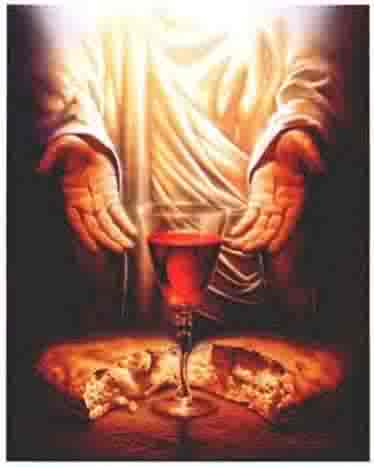 vs.51 Jesus said to the crowd:
vs.51 Jesus said to the crowd:
"I am the living bread which has come down from heaven. Anyone who eats this bread will live for ever; and the bread that I shall give is my flesh, for the life of the world."
vs.52 Then the Jews started arguing with one another: "How can this man give us his flesh to eat?" they said.
vs.53 Jesus replied:
"I tell you most solemnly, if you do not eat the flesh of the Son of Man and drink his blood, you will not have life in you.
vs.54 Anyone who does eat my flesh and drink my blood has eternal life, and I shall raise him up on the last day.
vs.55 For my flesh is real food and my blood is real drink.
vs.56 He who eats my flesh and drinks my blood lives in me and I live in him.
vs.57 As I, who am sent by the living Father, myself draw life from the Father, so whoever eats me will draw life from me.
vs.58 This is the bread come down from heaven; not like the bread our ancestors ate: they are dead, but anyone who eats this bread will live for ever."
*******************************************
We have four commentators available from whom you may wish to choose .
Michel DeVerteuil :A Holy Ghost Priest, director of the Centre of Biblical renewal .
Thomas O'Loughlin:Professor of Hist Theology Univ of Nottingham NG7 2RD
Sean Goan:Studied scripture in Rome, Jerusalem and Chicago
Donal Neary SJ: Editor of The Sacred Heart Messenger and National Director of The Apostlship of Prayer.
****************************************
Michel DeVerteuil
Lectio Divina with the Sunday Gospels
www.columba.ie
Textual Comments
This is the fourth passage from John 6 that the Church invites us to meditate on at this time of the year, and the third in which Jesus gives the people a teaching based on their experience of the miraculous feeding.
Some themes are repeated in all these passages, and yet each passage has its own dominant theme running through it. In the two previous passages Jesus presented himself to the people as "bread come down from heaven". In this one, he pushes the metaphor further: he gives them his flesh to eat and his blood to drink.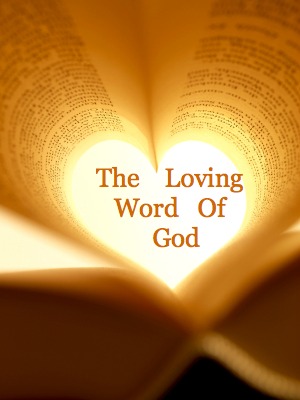
You may find the metaphor strange, but you should try to enter into it, so that it becomes part of your prayer. Remember that in Bible meditation it is not sufficient to get the meaning of a passage; you must get into the words themselves and grow to love them so that you feel moved to repeat them many times.
The metaphor has its origins in "flesh and blood", the biblical expression that means the reality of a human being, with a special stress on his or her weakness or limitations. For example, when in Matthew 16 Peter made his act of faith, it did not come from "flesh and blood", but as a gift from God. So, too, St Paul warned the Ephesians that their struggle was not merely against "flesh and blood", but against heavenly forces.
When Jesus says that he gives his flesh to eat and his blood to drink,
he is saying three things.
The first is that he gives himself totally to others; every 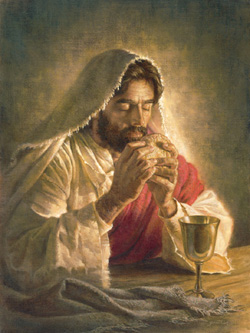 part of his being is at their service. It is the same as saying "This is my body given for you."
part of his being is at their service. It is the same as saying "This is my body given for you."
Secondly, he is inviting people to deep union with himself, to "have his spirit coursing through their souls so that they can know the passion of his love for every one", as we sing in the hymn "To be the Body of the Lord."
Thirdly, he wants them to unite their weakness and their sufferings with his so that they can experience his strength and his courage. As he would say to them at the Last Supper, "In the world you will have trouble, but be brave, I have conquered the world." When we eat his flesh and drink his blood, our own flesh and blood are ennobled. St Paul says it in 2 Corinthians: 'We carry with us in our body the death of Jesus so that the life of Jesus too may always be seen in our body."
The passage is therefore a meditation on Jesus as teacher, leader and guide. In all three roles he does not stand outside of people, he wants to share their lives and to have them share his.
Now this tells us something about God. Whereas we tend to imagine God in heaven looking down on us but not getting involved in the movement of our history, Jesus shows God entering into flesh and blood with us.
But the passage also tells us about human relationships. In your meditation remember with gratitude people who have been Jesus for you - a parent, a spiritual guide, a friend, a national leader. Naturally you will feel the passage calling you to grow in your own relationships.
Finally, a good meditation on this passage will help you to appreciate the Eucharist. It will show you why Jesus chose to be present in the Church under the form of bread and wine.
It is not possible to meditate on a passage such as this one all together: take one section at a time and enter into it, letting it speak to your experience. I suggest dividing the passage as follows:
- Verses 51 and 52: the people are questioning the very possibility of someone giving himself totally, as Jesus claims to do. Their response is cynical, but is it not typical of the way many would respond today?
- Verse 52 invites us to think of people who have no life in them, and to go to the root cause - they have never experienced, or perhaps have never let themselves experience, the kind of selfless love that Jesus gives.
- Verse 54 introduces the theme we have met several times in the chapter; deep relationship with God in Jesus lifts us up beyond the limitations of time and history.
- In verse 55 we remember that there is false food and drink and to recognise them we can look at what relationship with Jesus does to us.
- Verse 56 teaches us the effect of love, the love of Jesus, as well as of all those who love selflessly.
- In verse 57 we see another effect of selfless love. Here, as frequently in St John's gospel, Jesus' relationship with his followers is similar to his relationship with his Father - "as the Father has sent me so I am sending you";
"as the Father loves me so I have loved you."
- In verse 58 we see again the theme of the newness of Jesus' teaching.
Prayer Reflection
Lord, we remember with gratitude the day when we realized for the first time that following Jesus meant eating his flesh and drinking his blood.
 Up to then it was a matter of believing abstract truths -
Up to then it was a matter of believing abstract truths -
that Jesus was truly God and truly man,
that there are three persons in God and seven sacraments.
That kind of faith was not a source of life for us.
Then one day we knew that we had to lay down our lives
- caring for a wayward child,
- working for reconciliation in the workplace and being attacked by both workers and employers;
- forgiving someone who had hurt us deeply.
At that moment we knew that Jesus on the cross was present within us,
and the strange thing was that we felt an inner strength and freedom,
and we were certain that no matter how low we fell he would raise us up.
Lord, self-centredness has become like a first principle of living today.
People will argue with one another that it is not even possible
for us to give our flesh to be eaten,
and yet there can be no life in the world without selfless giving,
not in nature, not in families, not in any society.
Lord, we pray for those who are mourning for a loved one.
Remind them that Jesus gave them his flesh to eat and his blood to drink
and he will raise them up on the last day.
"I should like to set down here my own belief. In so far as I am willing to be made an instrument of God's peace, in that far have I already entered into eternal life." ...Alan Paton
Lord, we thank you for those who eat the flesh and drink the blood of Jesus
and therefore already have eternal life.
"We need the eyes of deep faith to see Christ in the broken bodies and dirty clothes under which the most beautiful one among the sons of men hides." ... Mother Teresa
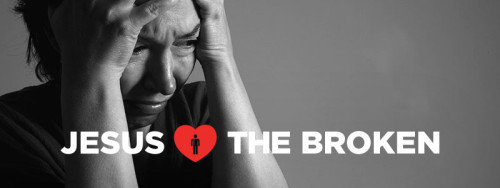
Lord, help us to receive Jesus when he comes to us in flesh and blood.
Lord, you give us food and drink so that we might live more freely and creatively.
Yet we nourish ourselves with many things that are not life-giving at all,
but rather clutter up our lives and keep us in bondage.
We pray that your Christ may be Jesus today, giving the world real food and drink.
Lord, we thank you for the people who have touched our lives;
when we read the story of Jesus we see them living in him,
and when we remember their stories, we see Jesus living in them.
Truly they have eaten his flesh and drunk his blood.
Lord, we talk too much when we pray. Teach us to remain silent,
so that we become conscious of Jesus present within us
and the life he draws from you may well up in us too.
Lord, we think today of those who see their spouses destroying themselves
with bitterness, envy or false pride.
With anguish in their hearts, they say to them, as Jesus said to his followers,
"Unless you allow yourself to receive selfless love, you will not have life within you."
Lord, we pray for the peoples of Africa and South Africa, Ireland, China, Afghanistan, Sri Lanka, Sudan, Ethiopia. the Ukraine and Russia, Palestine, Gaza and Israel
For generations their ancestors ate the bread of suspicion, fear and hatred, and they are dead.
We thank you that you are raising up some new leaders in those countries,
and they, like Jesus, are offering their people a different kind of nourishment, based on reconciliation and sharing, bread come down from heaven, so that they can eat it and live.
*************************************
Thomas O'Loughlin
Liturgical Resources for the Year of Matthew
www.columba.ie
Introduction to the Celebration
'Anyone who eats this bread will live forever.' These words of Jesus from today's gospel set the tone of our celebration today. We who share this meal share in the life of Jesus. And as he says: 'As I draw life from the Father, so whoever eats me will draw life from me.'
This is not some magic formula, rather it is the mystery that our sharing here is not simply joining us to one another in the way that every common meal unites those who participate in it, but that in our sharing here we are caught up into the life of God. We are caught up into the life of the Father, who has sent his Son among us as our source of life and wisdom, and who has sent his Spirit into our hearts.
Homily Notes
1. When I wander around a supermarket I can buy any food I fancy, from anywhere in the world, at any time in the year. While it might be hard to buy a Christmas Cake in July, virtually anything else I fancy — and can afford — is available all the time. I can choose a menu every day based on what I want, what I like, or what the latest television cooking sensation decrees is what stylish people eat. It could be a wintry day in January, yet I might want a salad and can find all that I need to make it: seasons no longer count, and I might have exotic flavours — all fresh — from three continents. We are less than a generation from when we marvelled that one could get 'new' potatoes all year round, yet in this world of maximum consumer choice we simply cannot grasp the full significance of Jesus describing himself as the bread of life.
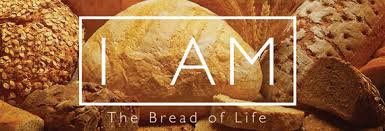
2. For most of human history — and history begins with the settled agricultural life of Mesopotamia — the key to life is a ready access to storable carbohydrates: grain which can be turned into bread weeks, months or even years after the harvest. The regularity of the grain harvest was at the core of settled, urban life; and it was at the centre of religion in that temples were, inter alia, at the centre of urban life in that they were grain stores. So running right through the history of civilisation and / or religion is the issue of having enough grain and avoiding being without it. Grain meant bread, bread meant life; its absence meant famine and death. It is in this context we have to hear the old adage: 'Bread is the stuff of life.'
3. This dependence on bread was not some obscure item of economic knowledge: everyone understood it and felt it. The fear of having no bread caused riots, made kings look foolish, made clergy look ineffective, and obtaining grain stood behind a whole range of exertions. One has only to think of the riots over food at the time of the French Revolution or the fear of famine that stalked Irish memories after the famine of 1845-47. Food and survival are linked in a way we cannot, thankfully, understand.
**********************************
Sean Goan
Let the reader understand
www.columba.ie
Gospel: John 6: 51-58
We begin here, where we left off last week, with further misunderstanding of Jesus by the crowds. Clearly Jesus is not speaking of cannibalism and so he takes the image further by talking of his flesh and blood. Partaking in his flesh and blood means believing in him and in his life-giving death. Through their faith they are in communion with him and that communion is 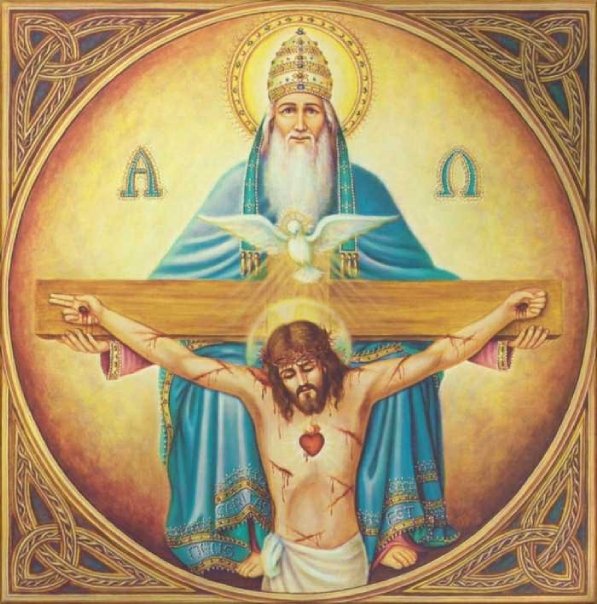 expressed through the Eucharist.
expressed through the Eucharist.
The believer comes to live in him and draws life from him just as Jesus himself drew life from the Father. Everything here must be viewed from the perspective of Jesus' death on the cross. Through the Eucharist we come to live by the same self sacrificing love that brought Jesus to Calvary. It is striking that in John's account of the last supper there is no specific reference to Eucharist but rather a depiction of Jesus washing the disciples' feet. John shows us the Eucharist in action and this is a reminder that the union with Jesus offered through Holy Communion cannot be thought of in some purely personal, devotional way. Jesus gives himself to us so that we can give ourselves to others.
Reflection
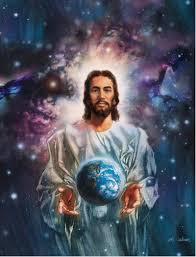 Even though the first reading today may be two and an half thousand years old, the call to seek wisdom and reject foolishness has a very contemporary ring to it. Human nature does not change but we are slow to learn from experience. Today, life itself on this wonderful planet is threatened by our folly and a refusal to recognise that our actions have consequences. Instead of feasting ourselves at the sustainable banquet at Wisdom's house, we prefer to go blindly on gorging ourselves and ignoring the fact that God has called us to a responsible stewardship of his creation. Our celebration of the Eucharist should be a weekly reminder to us that we are all called to a life-giving relationship with God, with one another and with the planet we share.
Even though the first reading today may be two and an half thousand years old, the call to seek wisdom and reject foolishness has a very contemporary ring to it. Human nature does not change but we are slow to learn from experience. Today, life itself on this wonderful planet is threatened by our folly and a refusal to recognise that our actions have consequences. Instead of feasting ourselves at the sustainable banquet at Wisdom's house, we prefer to go blindly on gorging ourselves and ignoring the fact that God has called us to a responsible stewardship of his creation. Our celebration of the Eucharist should be a weekly reminder to us that we are all called to a life-giving relationship with God, with one another and with the planet we share.
********************************************
The Best and the Worst
We can recall the homely smell of freshly baked bread, a good beginning to the day. But bread has to be baked with huge heat for the flour. The wheat is crushed. A way of saying that in life there is the joy and the pain; and things can go wrong. Life’s joys and sorrows are a mixture, and much of the best has some of the worst. The bitterest pain can be when the loved one dies, but you would never cancel out the love for the pain. Death is like that – the worst of life leads to the best of eternity. We often find something great in the worst of times. We get a good result in exams and you forget the pain of getting them.
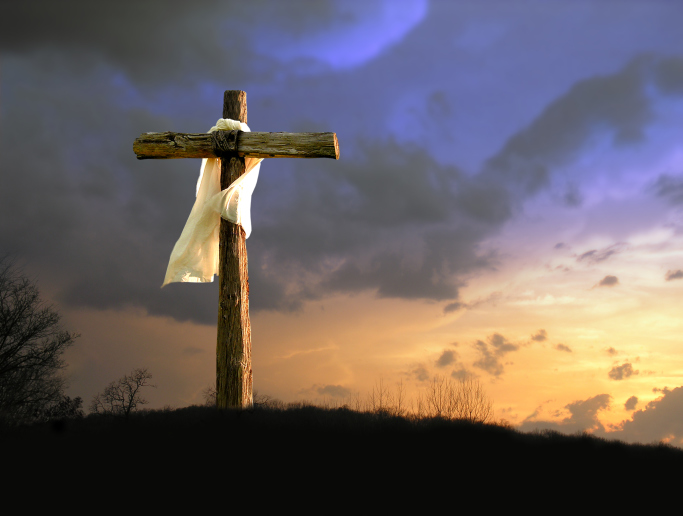
The best and the worst in Jesus’ life are in the bread and wine of the Mass. The Eucharist recalls the love of God and the cruelty of the human race, all at the one time. Love given and received, but also torture and death at the hands of cruel people.
At the Eucharist, we hold up the world's goodness and joys, along with its depressions and failures, and ask God to be with us in both. Bread symbolises what is good, wine the pain – this is a way of looking on the Eucharist.
Come and eat – come and offer. The best and the worst. The host we will be host we receive, and is the full and real Jesus, pain and all. It is truly the bread of life and the cup of salvation.
Imagine Jesus offering you some bread:
this ordinary food is the bread of life.
When we eat the bread and drink of the cup,
we proclaim your death, O Lord, until you come again.